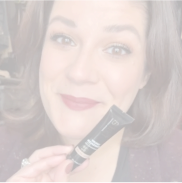What Are Age Spots?
Perhaps you’ve noticed the presence of dark spots on your own skin or the skin of a loved one. They are often referred to as liver spots as well. Some of them might look similar to a mole, while others might be larger in size and a little bit lighter like a freckle.
Because these spots are more common in older adults, many people assume that age spots come naturally as a sign of growing older. That is not true.
Age spots are a result of spending time in the sun.
They can be more common in fair-skinned folks, because fair skin does not have as much melanin to protect itself from the sun, but anyone who spends (or has spent) ample time in the sun can be prone to liver spots. Just as anyone can experience sun damage, even as the visibility varies on different skin tones.
You might understand now how the term “age spot” can be misleading. In the same way that your skin wrinkles later in life if you spent a lot of (unprotected) time in the sun, your skin can develop liver spots later in life from having spent a lot of (unprotected) time in the sun.
The medical name for these spots is “solar lentigo”. Solar for sun, and lentigo for colored legion.
Are Age Spots Dangerous?
Liver spots are not dangerous. In fact, they are completely harmless.
If you do not like the appearance of liver spots for cosmetic reasons, there are plenty of creams and serums that work to diminish signs of aging and signs of sun damage, such as the Fièra Citrus Stem C Serum.
With its antioxidant power, the Citrus Stem C Serum will even out your skin tone so that any discoloration in various areas is smoothed out.
Plus, it will protect and preserve your skin going forward while also diminishing other signs of aging such as fine lines and wrinkles.
All Fiera Cosmetic products are also all-natural, meaning that they are non-GMO, cruelty-free, fragrance-free, gluten-free, and paraben-free.
How Does Sun Damage Happen?
Looking back, you might regret the times you did not put on sunscreen. You’re not alone. It can seem harmless when you’re young and your skin bounces back easily, but sun damage has real, lasting effects, especially over the span of a lifetime.
Ultraviolet (UV) rays expose your skin to radiation from the sun, which in turn can cause wrinkles, discoloration, and in many cases, skin cancer.
Fortunately, it is never too late to start protecting your skin from the sun.
Getting in the habit of wearing sunscreen every day can be a game-changer for the health and safety of your skin.
Even if you do not think that you burn, you do. The tanning of your skin is simply a burn that has a different pigmentation because of your natural skin tone. It is still an ultraviolet burn.
For extra protection, consider wearing a hat to protect your scalp and face from excessive exposure. These preventative measures (at any age) will automatically slow down signs of aging. Take action today.
For more information about how to take care of your mature skin, click here.

